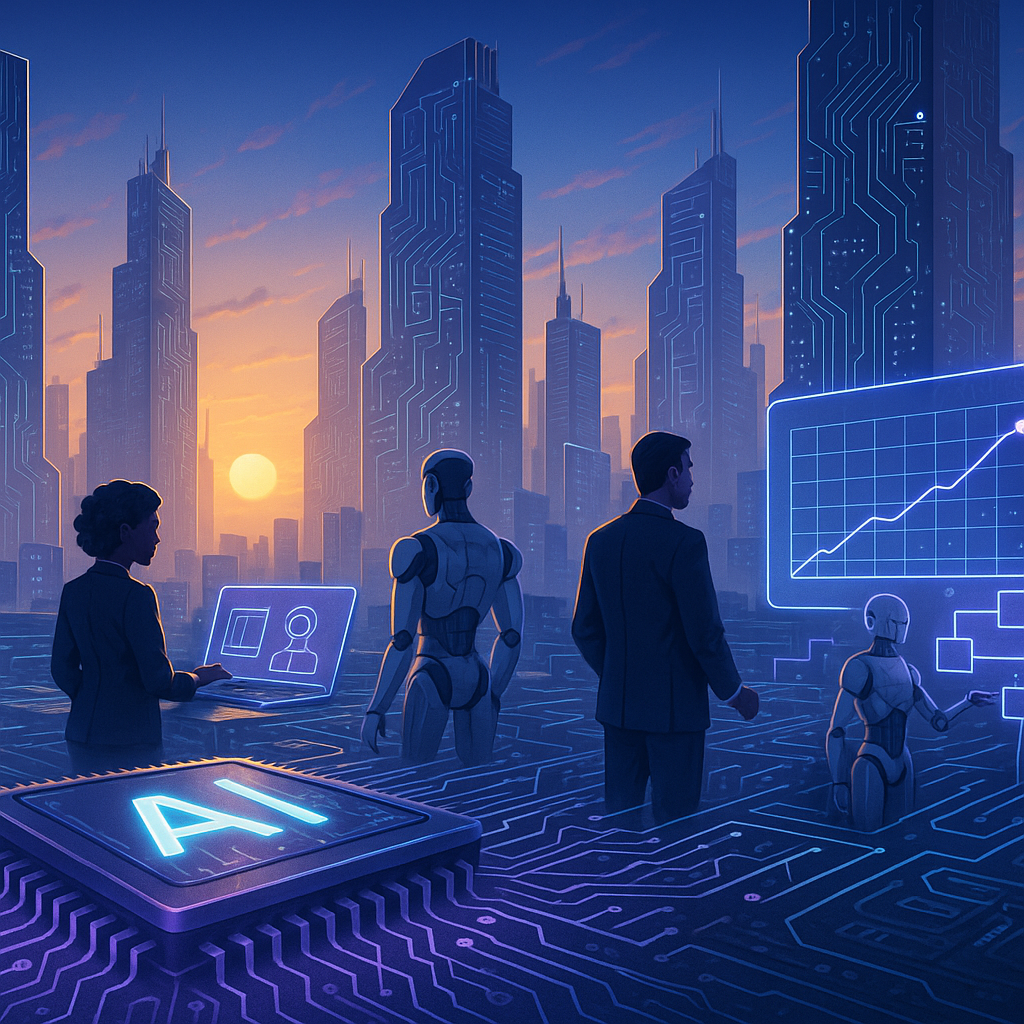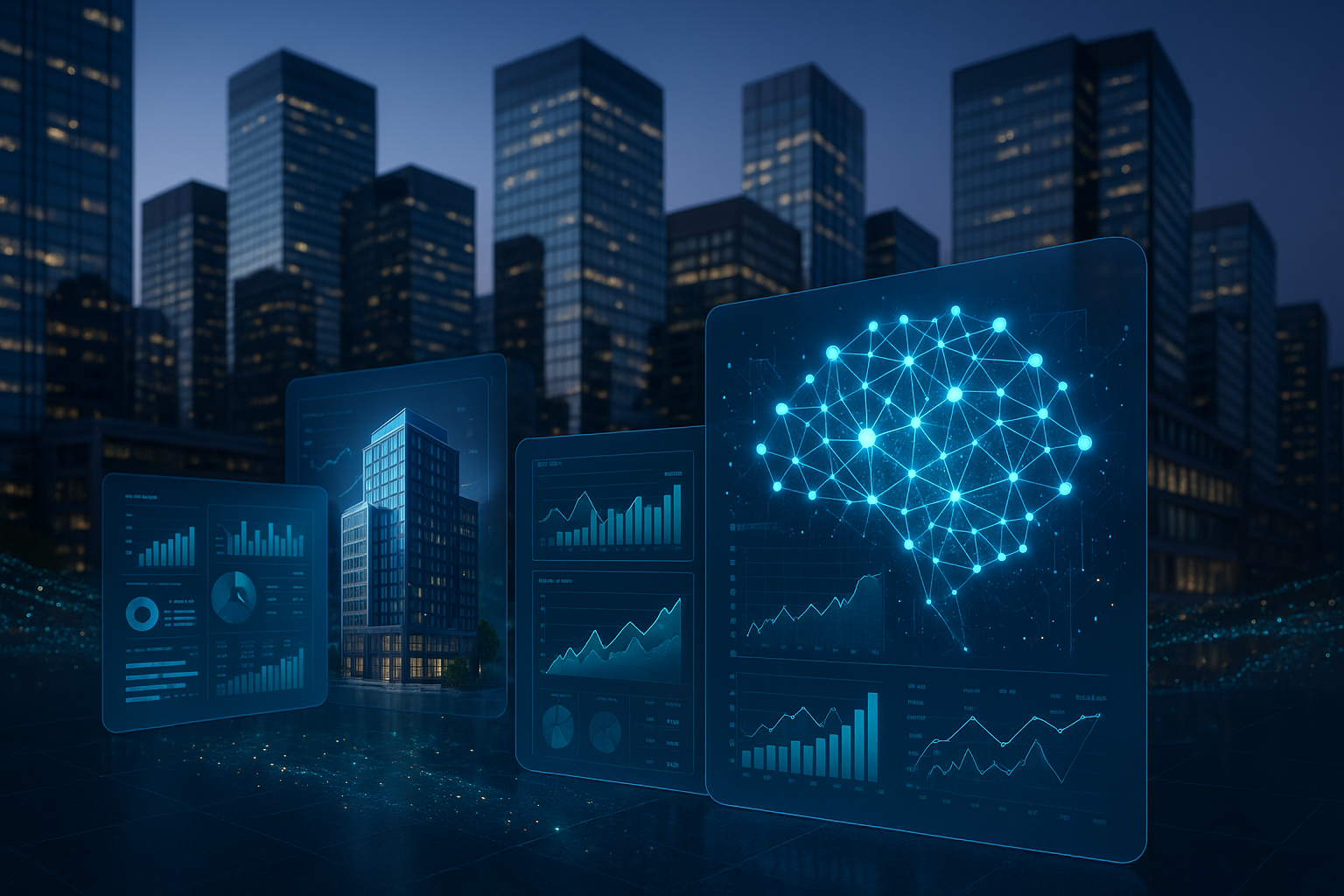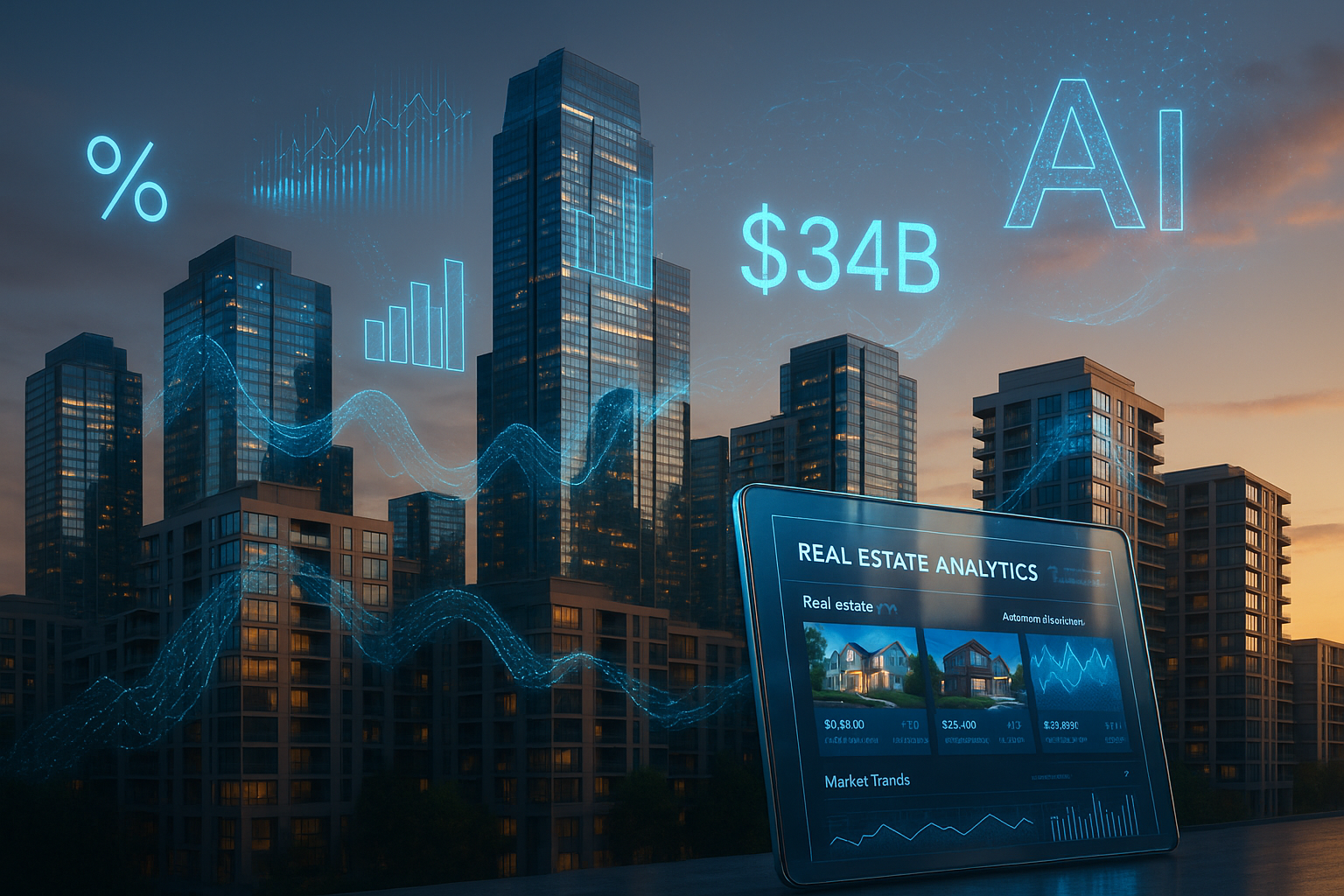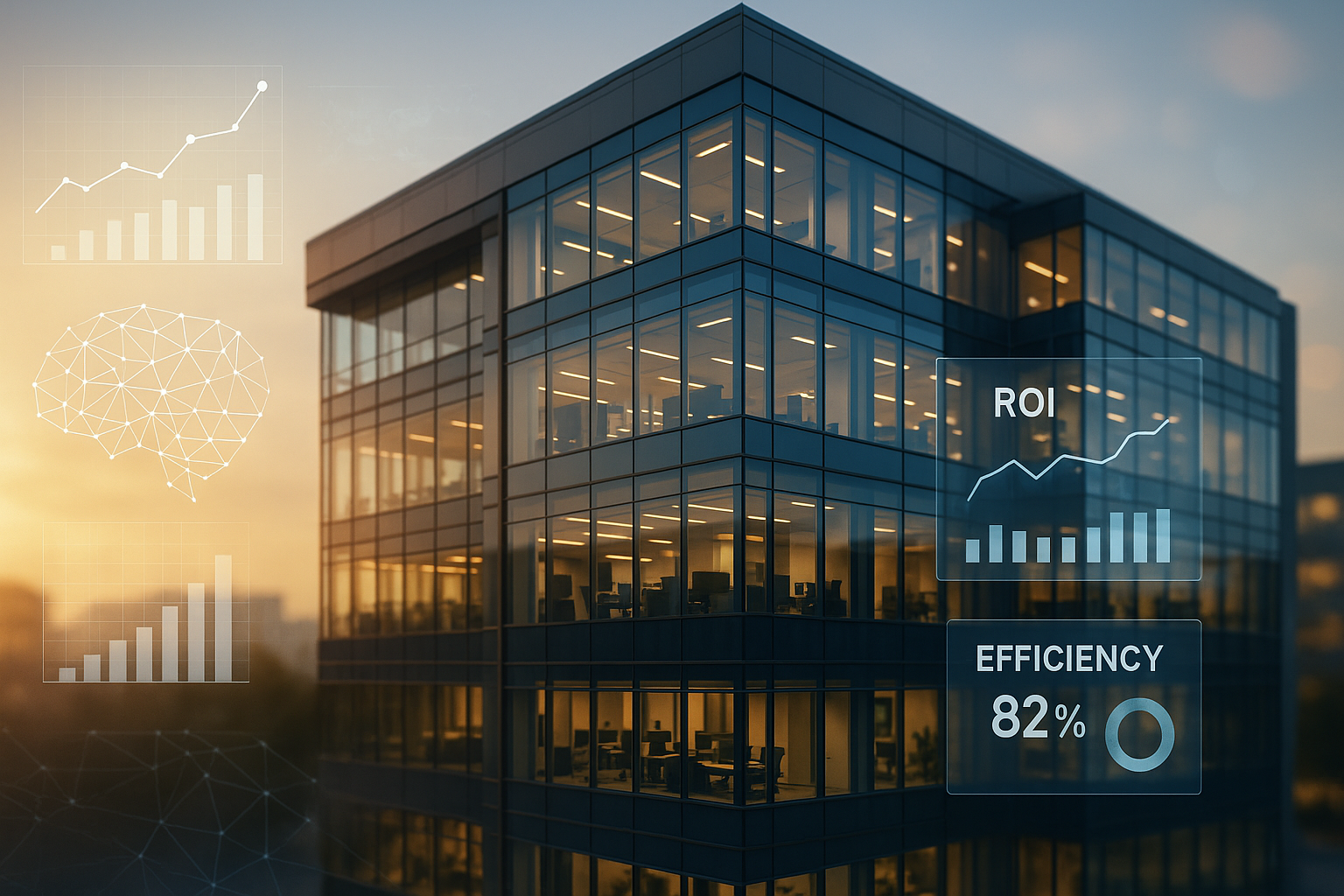
The Most Exciting and Innovative AI Advancements of 2025: A New Era Unfolds
Caiyman.ai Research Team
AI Solutions Architect
Artificial intelligence in 2025 is evolving at a breakneck pace, marking a new era of innovation that is reshaping industries, work, and even the boundaries of AI itself. Over just a few months, we've witnessed fundamental breakthroughs in hardware, agentic technology, and workplace transformation—paired with mounting discussions about risk, security, and ethics.
The Unprecedented Speed of 2025: What Sets This Year Apart
It’s not just faster models or bigger datasets. 2025 distinguishes itself with the sheer diversity and scale of innovation, from foundational shifts in AI hardware to major leaps in the real-world use of AI agents. This convergence is driving progress that feels less incremental and more revolutionary, stoking both excitement and sober debate throughout the tech community.
Breakthroughs in AI Hardware and Infrastructure
This year, AI’s foundations are being rapidly reengineered. OpenAI is finalizing its first in-house AI chip designs, seeking greater autonomy from major suppliers and aiming for deep optimization of AI training and inference. Other giants, from Microsoft to Meta, are investing billions in purpose-built hardware and advanced infrastructure. At Computex 2025, companies like GIGABYTE showcased comprehensive AI hardware—from rack-scale GPU clusters for data centers to edge devices with embedded neural accelerators—fueling explosive growth in AI capabilities across sectors.
AGI: Renaissance or Hype?
The prospect of artificial general intelligence (AGI) is no longer distant speculation. Some leaders now claim AGI could arrive within the year, prompting hopes of a renaissance in mathematics, physics, and economics. Next-gen AI systems are already automating research, code writing, and problem-solving at levels once considered uniquely human. Still, experts warn that AGI hype can outstrip reality, highlighting serious gaps in readiness, oversight, and societal preparedness—especially as AI’s autonomy and reach accelerate.
Explosion of AI Agent Capabilities and Integrations
AI agents are at the heart of 2025's technological leap. Amazon’s Nova Act is revolutionizing browser-based automation, outperforming competitors and offering developers a robust SDK for custom agents. Anthropic's Claude Integrations now allow real-time orchestration across popular productivity tools—Zapier, Jira, Asana, and more—ushering in a wave of workflow automation and research capabilities. Nvidia’s new approach integrates modular, specialized AI agents, reducing errors and enhancing reliability for applications in areas like gaming, finance, and robotics. Open source initiatives (such as LangGraph) let builders craft complex, multi-agent systems with hierarchical teamwork and supervision.
AI in the Workplace and the Rise of AI Employees
The lines between human and machine teammates are blurring. Anthropic forecasts the first fully autonomous AI employees by 2026, with AI agents already responsible for automating routine business tasks, managing workflows, providing real-time analytics, and boosting productivity. These virtual colleagues are streamlining operations for remote and hybrid teams in sectors from customer support to finance, laying the groundwork for a transformed work experience—and raising important questions about security, identity, and oversight.
Continual Learning and Adaptive Models
Despite their power, today’s AI systems often face limitations in adapting to new data after deployment. Startups and research labs are racing to address this with continual learning and self-evolving models. Databricks's TAO (Test-time Adaptive Optimization) uses reinforcement learning and synthetic data to let models fine-tune themselves on the fly—showing measurable gains on complex, real-world tasks and financial benchmarks.
Industry Transformation: From Finance to Proptech
The impact of 2025’s AI breakthroughs is being felt everywhere. In finance, firms like AQR are leveraging AI for smarter portfolio construction and real-time trading decisions. Commercial real estate platforms now tap proptech agents for lease management, investment analysis, and facility automation. Companies using agentic AI for business workflows (Salesforce, ServiceNow, Snowflake) are reporting unprecedented operational efficiencies and new service models.
Ethical and Security Frontiers
As AI systems grow more complex, so do concerns about transparency, interpretability, and risk. 2025 has seen pioneering work in model interpretability and AI safety, such as Anthropic’s internal mapping of large language model concepts, and growing interest in exploring AI consciousness. At the same time, a surge in AI-powered cyberattacks has prompted calls for new security standards, careful model evaluation, and adaptive risk management frameworks modeled after NIST guidelines.
Looking Forward: What’s Next for AI?
The shockwaves of 2025’s innovations are only beginning. The immediate future promises ever-more powerful agentic systems, AI-optimized hardware, deeper industry integration, and continued debate over AGI and AI “employees.” Yet, as the AI Hype Index reminds us, maintaining a clear-eyed approach—balancing breathtaking potential with deep responsibility—will be crucial for sustainable progress. One thing is certain: the line between possibility and reality is growing thinner by the day.
Sources
- The New York Times: Powerful A.I. Is Coming. We're Not Ready.
- Forbes: The AGI Renaissance
- Wired: Databricks Has a Trick That Lets AI Models Improve Themselves
- Anthropic: Claude can now connect to your world
- WSJ: Nvidia Thinks It Has a Better Way of Building AI Agents
- MarkTechPost: OpenAI Releases a Practical Guide to Building LLM Agents
- McKinsey: The CEO’s guide—McKinsey’s latest insights on AI
- FT: From Scalable Solutions to Full-Stack AI Infrastructure, GIGABYTE at COMPUTEX 2025
- GovInfoSecurity: Adapting to AI—The Future of Security and Workforce
- Visual Capitalist: Ranked—All the Things People Use AI For in 2025
Share this article
Related Articles

AI in Real Estate Finance: Market Analysis, Top Platforms & 2026 Implementation Strategies
Comprehensive analysis of AI adoption in real estate finance, featuring market projections, platform comparisons, and strategic implementation guidance for 2026.

AI Revolution in Real Estate 2025: How Technology is Driving $34B in Industry Transformation
Discover how artificial intelligence is revolutionizing real estate with $34 billion in projected efficiency gains, 37% task automation potential, and game-changing technologies reshaping every aspect of property operations in 2025.

AI in Commercial Real Estate 2025: How Smart Technology Is Reshaping Property Investment and Management
Discover how artificial intelligence is transforming commercial real estate in 2025, from predictive analytics to smart building management, driving 70-95% efficiency gains and creating new competitive advantages for property professionals.